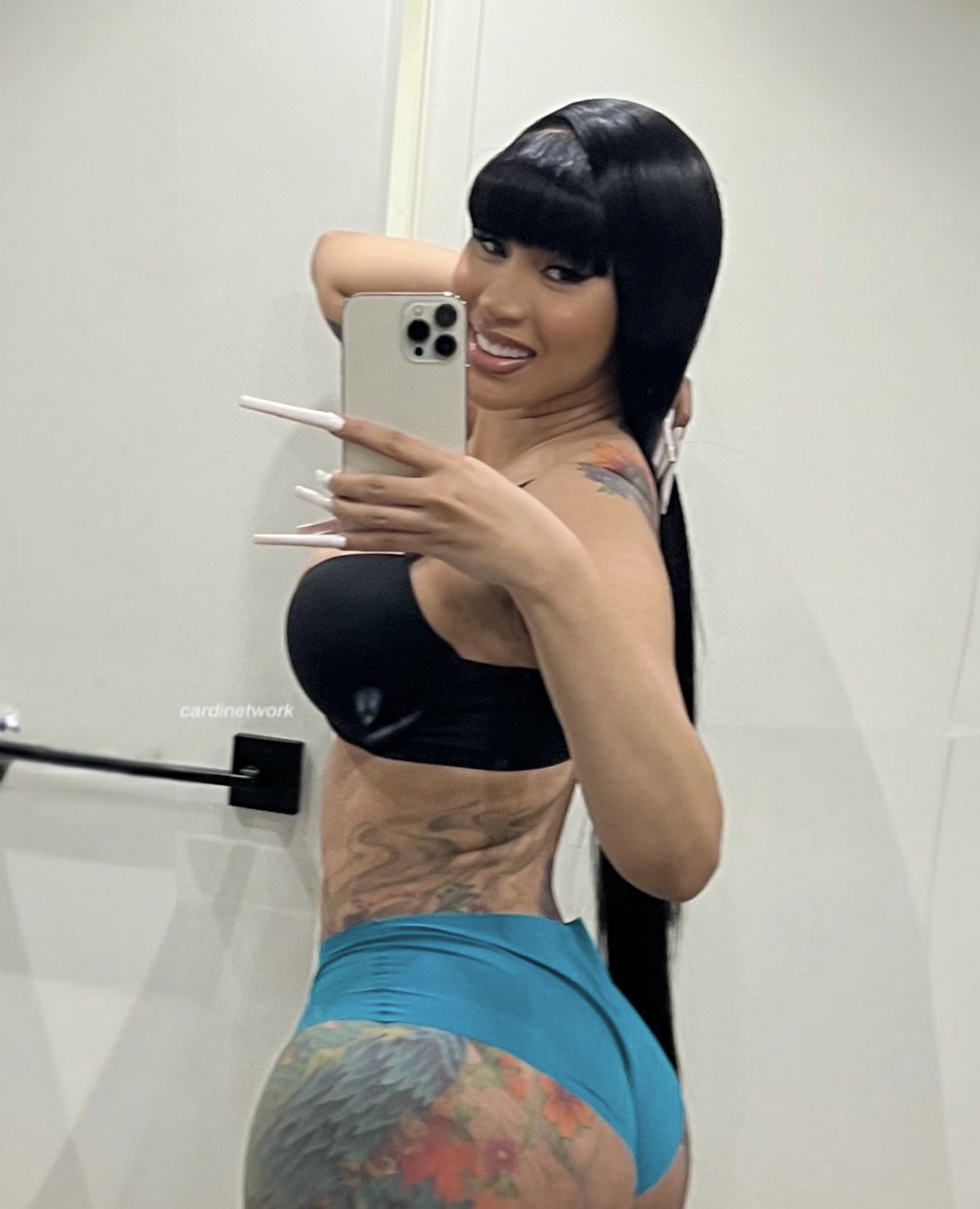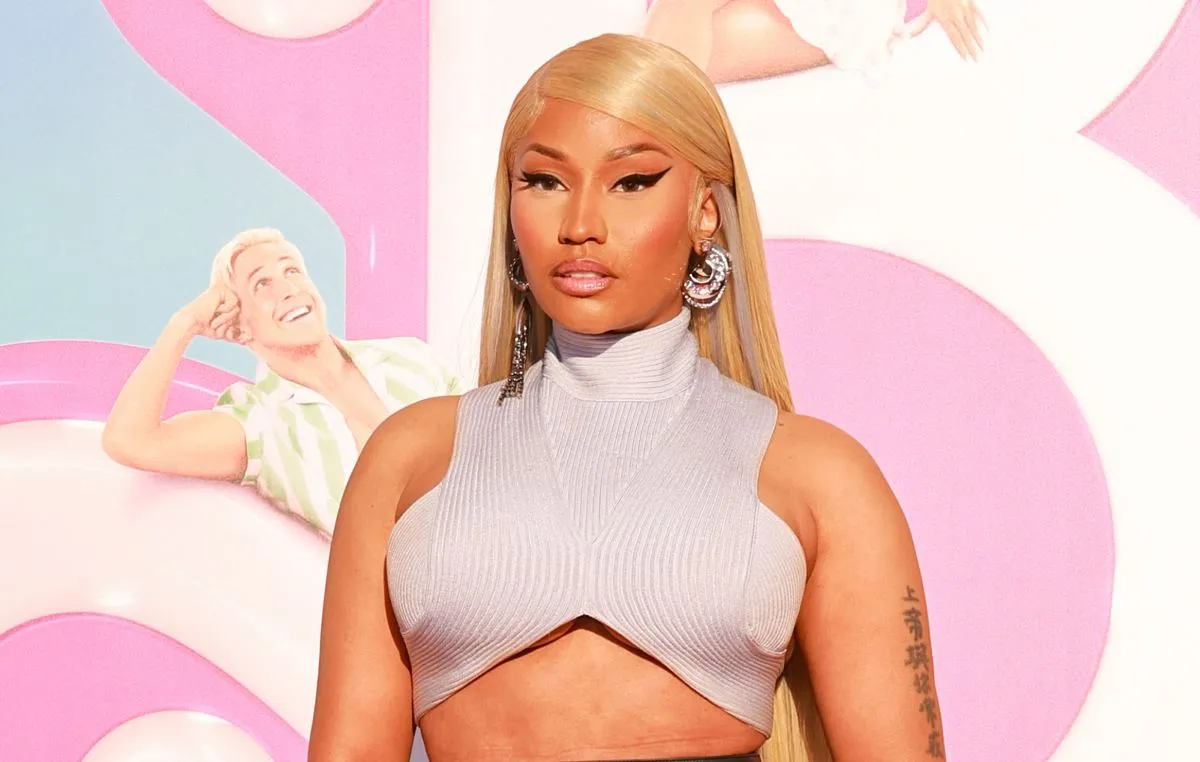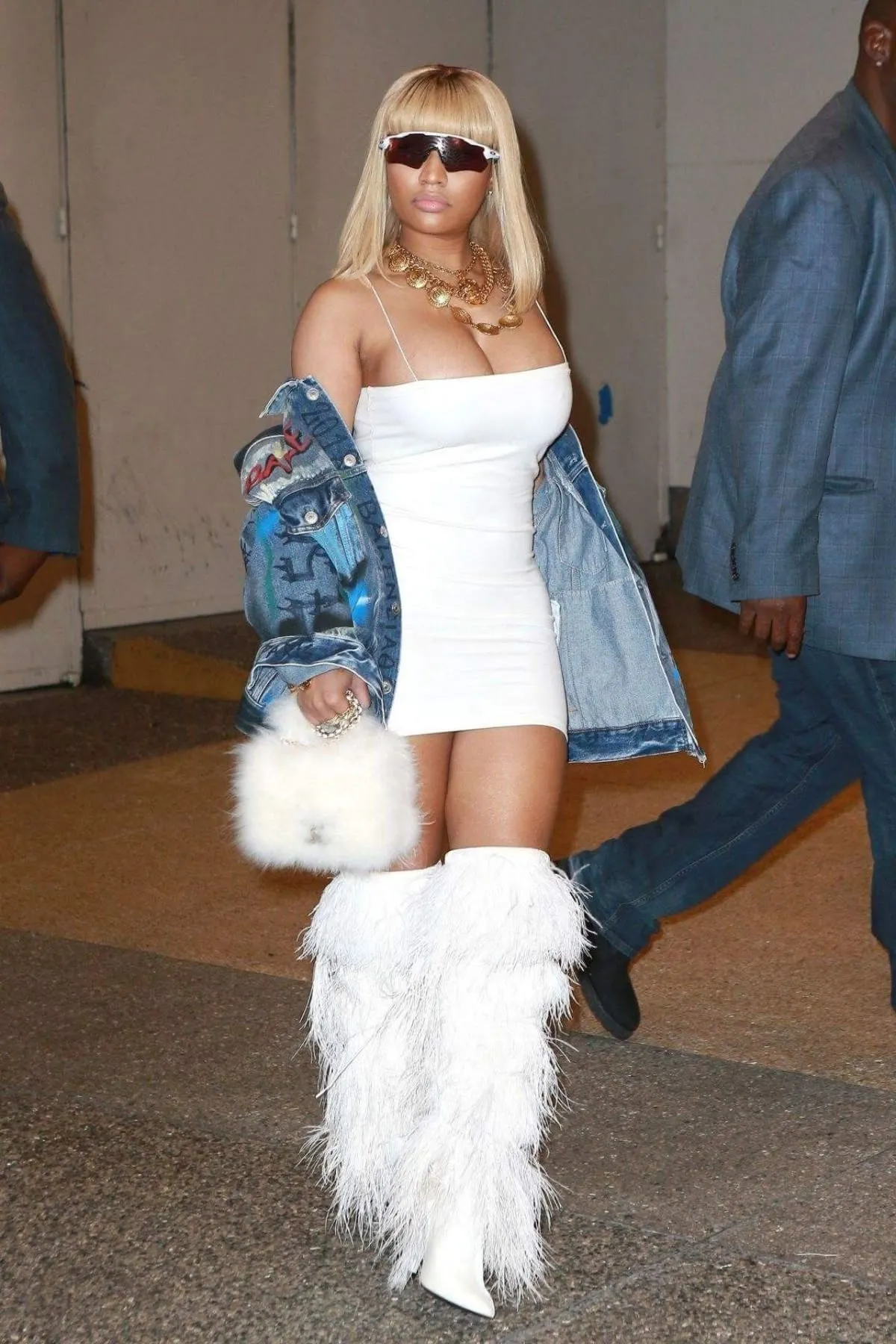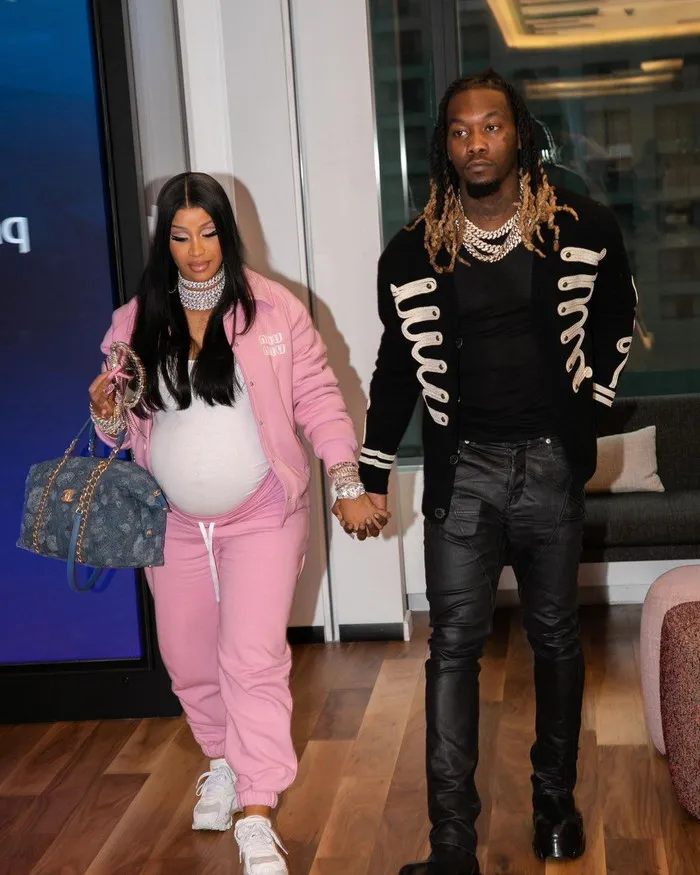
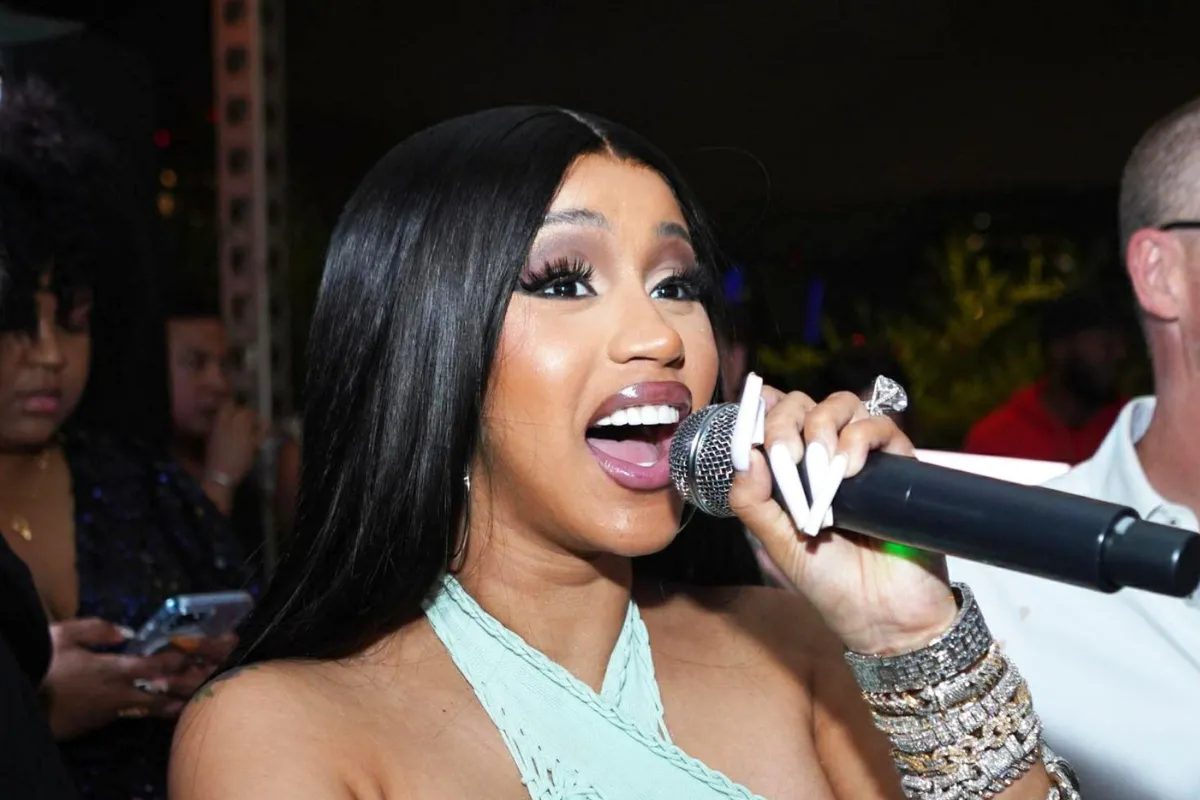
This Is the LAST Time Cardi B Explains the Fatphobia Controversy — And It’s Explosive
The world of hip-hop has never been short of drama, but when Cardi B speaks, the noise echoes far beyond the music industry. Known for her unapologetic honesty, the Bronx-born rapper has always commanded attention for her unfiltered opinions, whether on politics, motherhood, or the pressures of fame. Recently, however, she found herself embroiled in a storm that spiraled into one of the most heated conversations of her career — the fatphobia controversy. After weeks of speculation, online debates, and media scrutiny, Cardi B has made it clear: this is the last time she’s explaining herself. And in typical Cardi fashion, her words are explosive, raw, and unapologetically direct.
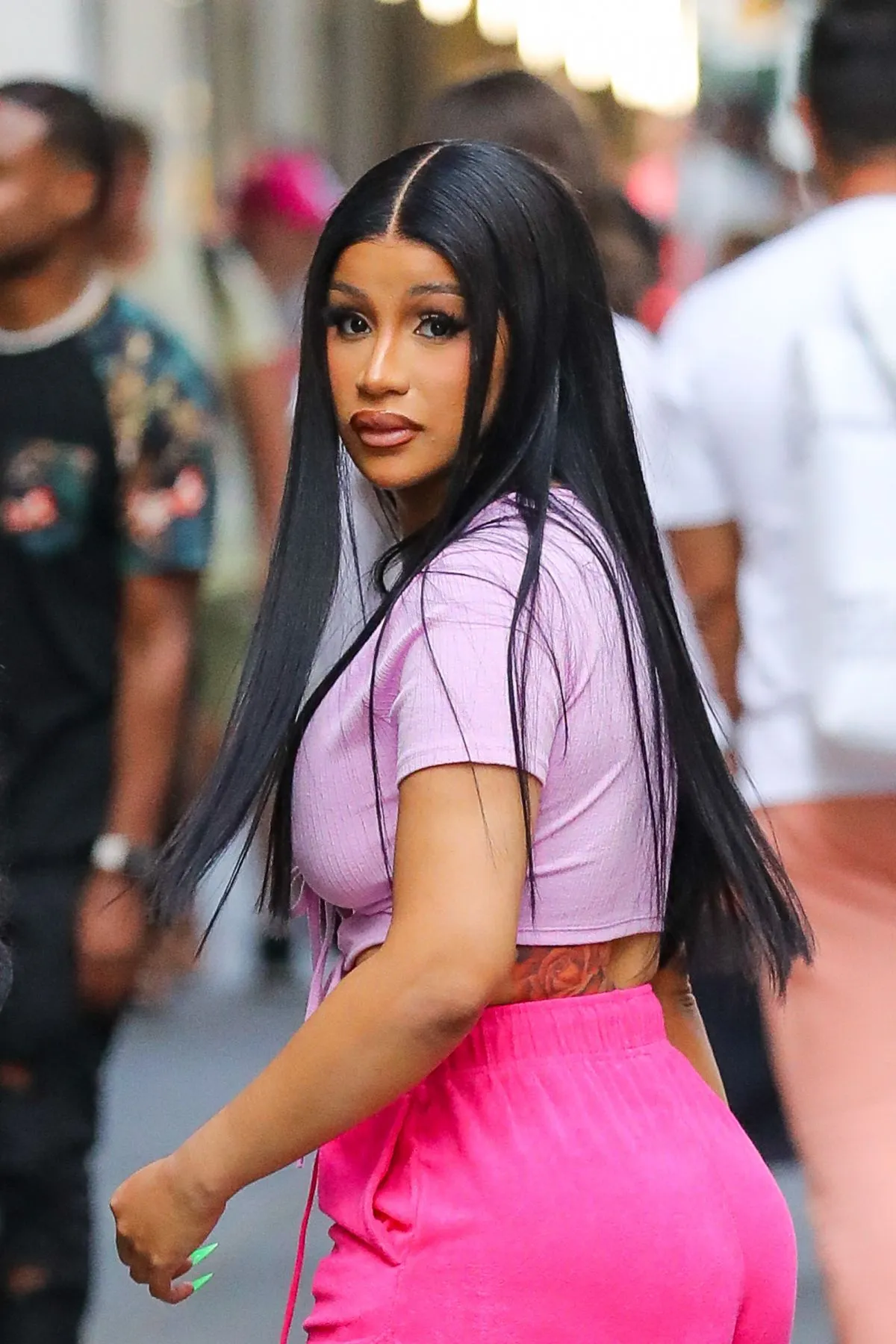
The Origins of the Fatphobia Debate
The controversy began when Cardi B’s comments during an Instagram Live session were interpreted as insensitive toward body image struggles. While she had initially been discussing the pressures of maintaining a public figure’s appearance, critics accused her of promoting fatphobia, a bias against individuals with larger bodies. Screenshots, short video clips, and half-context quotes circulated across Twitter, TikTok, and Instagram, fueling outrage.
What made the backlash particularly strong was Cardi’s own history of discussing beauty standards in the industry. She has been open about undergoing cosmetic surgery, struggling with postpartum body changes, and battling against impossible expectations placed on women in entertainment. Many fans argued that Cardi herself had faced body-shaming and therefore should have been more cautious in her wording. Yet others insisted she was being unfairly targeted for speaking candidly about her personal experiences.
For weeks, the debate refused to die down. Every tweet, every paparazzi appearance, and every side comment became dissected under the lens of the controversy. Critics claimed her remarks perpetuated a toxic culture, while supporters argued her honesty was being weaponized against her.
Cardi B’s Explosive Response
When Cardi finally addressed the issue in depth, she did so with a mix of frustration and fire. “I’m not repeating myself again,” she told her followers. “This is the last time I’m explaining what I meant, because I’m not here to feed drama. I’m here to speak my truth.”
In her statement, Cardi emphasized that her words had been misconstrued and ripped out of context. According to her, the conversation was never meant to demean people with larger bodies but to highlight the brutal realities of celebrity culture, where appearance is relentlessly scrutinized. She spoke about the double standards that plague women in particular, where even the slightest weight fluctuation becomes tabloid fodder.
Her anger was palpable as she described the way critics had framed her comments. Cardi pointed out that she has constantly defended women against unrealistic beauty standards and has repeatedly used her platform to call out toxic commentary about female bodies. “I’ve been called everything — fat, skinny, fake, plastic — you name it,” she said. “And now y’all wanna say I’m the one who’s against women? That’s not fair, and I’m done repeating myself.”
The Weight of Public Perception
Part of what makes this moment explosive is how it ties into broader conversations about celebrity accountability and cancel culture. Cardi B is no stranger to being a polarizing figure, but the fatphobia controversy touches on an issue much larger than one rapper’s remarks. Society is grappling with how to navigate body positivity, inclusivity, and representation, while still allowing space for celebrities to express their personal truths without being misrepresented.
Cardi’s explanation forces fans to confront an uncomfortable question: are we holding celebrities to impossible standards of perfection? On one hand, public figures have an undeniable influence on cultural conversations, and their words can shape the way millions of people view sensitive issues. On the other, stripping them of humanity by refusing to allow nuance or mistakes creates a toxic cycle of perpetual outrage.
In Cardi’s case, the controversy highlights the tension between authenticity and responsibility. She built her career on being brutally honest, never sugarcoating her experiences or opinions. But in an age of viral clips and fragmented social media debates, even a few seconds of speech can ignite an inferno.
The Impact on Cardi’s Career and Personal Life
For Cardi B, the fatphobia scandal has been exhausting not just professionally, but personally. She has admitted that the constant backlash affects her mental health, making her question whether being outspoken is worth the emotional toll. “People forget I’m human,” she said. “They think I’m just this machine that’s supposed to entertain, but I feel everything. I read what people say, and it hurts.”
Despite the negativity, Cardi’s career shows no signs of slowing down. Her music continues to dominate charts, and her collaborations keep expanding her influence beyond hip-hop into fashion, film, and activism. Still, the controversy lingers like an uninvited shadow, forcing her to once again defend herself publicly.
Her decision to frame this as her final explanation speaks volumes. It’s a declaration of boundaries in an industry that thrives on exploiting vulnerability. By refusing to endlessly rehash the same conversation, Cardi is reclaiming control over her narrative. Whether her critics accept her clarification or not, she has made it clear she won’t allow the controversy to define her future.
The Broader Conversation About Fatphobia
The debate surrounding Cardi B also underscores how deeply ingrained fatphobia remains in society. While movements toward body positivity have gained momentum, systemic biases persist in entertainment, fashion, and even healthcare. Cardi’s comments, regardless of intent, acted as a spark that reignited discussions about who gets to control narratives around body image.
For fans who felt hurt by her initial words, the pain stems from lived experiences of being marginalized for their bodies. For supporters, the outrage seemed disproportionate to what was actually said. The clash between these two perspectives illustrates the complexity of navigating sensitive cultural issues in a hyper-connected digital age.
What remains undeniable is the need for ongoing dialogue. Cardi B’s explosive explanation may close her chapter on the controversy, but the larger story — about how we as a society address fatphobia — is far from over. Her influence ensures that the issue remains part of the cultural conversation, whether people agree with her or not.
Why This Explanation Feels Final
There’s a reason Cardi B emphasized that this was her last time addressing the issue. She understands that no matter how many times she clarifies, critics determined to misinterpret her words will continue to do so. By shutting the door on the debate, she is protecting herself from the endless cycle of reaction and backlash.
At the same time, the finality of her words signals a shift in how celebrities are choosing to engage with controversy. More stars are drawing boundaries with fans and media, refusing to allow their entire careers to be defined by a single narrative. Cardi’s explosive explanation may be her way of saying: enough is enough.
Conclusion: The Cardi B Paradox
The fatphobia controversy will likely remain a defining moment in Cardi B’s career, not because it destroyed her reputation, but because it revealed the paradox at the heart of her public image. She is loved for being brutally honest, but that same honesty often lands her in hot water. She is celebrated for breaking barriers, but constantly criticized for the way she navigates them. She is hailed as a voice for women, yet scrutinized more harshly than many of her male counterparts.
By declaring this her last explanation, Cardi B is forcing the world to sit with the complexity of her persona. She refuses to be boxed into a villain or victim role. Instead, she remains what she has always been: unapologetically herself, explosive and raw, whether the world likes it or not.
The controversy may fade, but the questions it raises — about fatphobia, accountability, and authenticity — will continue to shape cultural conversations for years to come. And if history is any indication, Cardi B will always find herself at the center of those conversations, not because she seeks them out, but because she embodies the contradictions of our times.








